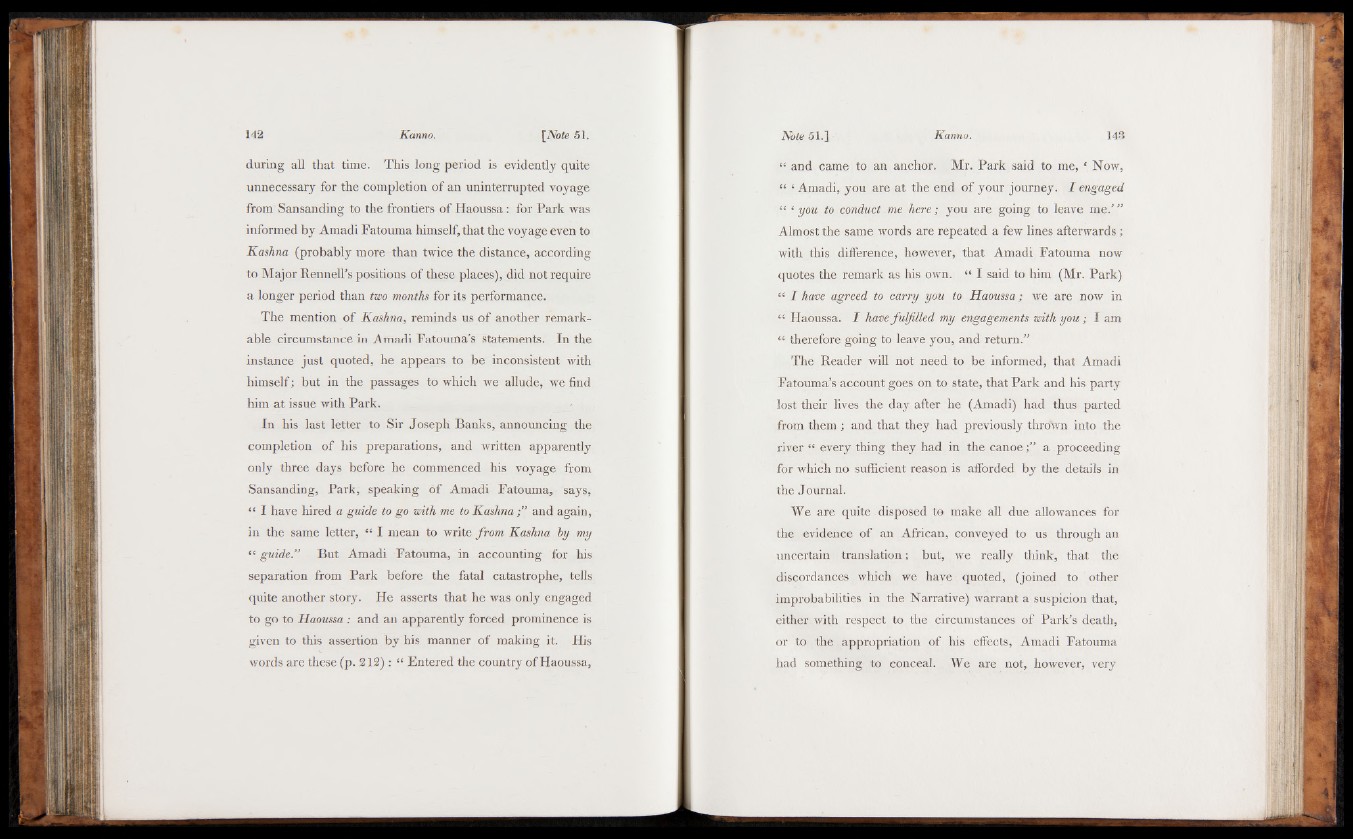
during all that time. This long period is evidently quite
unnecessary for the completion of an uninterrupted voyage
from Sansanding to the frontiers of Haoussa: for Park was
informed by Amadi Fatouma himself, that the voyage even to
Kashna (probably more than twice the distance, according
to Major Rennell’s positions of these places), did not require
a longer period than two months for its performance.
The mention of Kashna, reminds us of another remarkable
circumstance in Amadi Fatouma’s statements. In the
instance just quoted, he appears to be inconsistent with
himself; but in the passages to which we allude, we find
him at issue with Park.
In his last letter to Sir Joseph Banks, announcing the
completion of his preparations, and written apparently
only three days before he commenced his voyage from
Sansanding, Park, speaking of Amadi Fatouma, says,
“ I have hired a guide to go with me to Kashna and again,
in the same letter, “ I mean to write from Kashna hy my
“ guide.” But Amadi Fatouma, in accounting for his
separation from Park before the fatal catastrophe, tells
quite another story. He asserts that he was only engaged
to go to Haoussa: and an apparently forced prominence is
given to this assertion by his manner of making it. His
words are these (p. 212) r “ Entered the country of Haoussa,
“ and came to an anchor. Mr. Park said to me, ‘ Now,
“ ‘Amadi, you are at the end of your journey. I engaged
“ ‘ you to conduct .me here; you are going to leave me/ ”
Almost the same words are repeated a few lines afterwards;
with this difference, however, that Amadi Fatouma now
quotes the remark as his own. “ I said to him (Mr. Park)
“ I have agreed to carry you to Haoussa; we are now in
“ Haoussa. I have fulfilled my engagements with you ; I am
“ therefore going to leave you, and return.”
The Reader will not need to be informed, that Amadi
Fatouma’s account goes on to state, that Park and his party
lost their lives the day after he (Amadi) had thus parted
from them ; and that they had previously thrown into the
river “ every thing they had in the c a n o e a proceeding
for which no sufficient reason is afforded by the details in
the Journal.
We are quite disposed to make all due allowances for
the evidence of an African, conveyed to us through an
uncertain translation; but, we really think, that the
discordances which we have quoted, (joined to other
improbabilities in the Narrative) warrant a suspicion that,
either with respect to the circumstances of Park’s death,
or to the appropriation of his effects, Amadi Fatouma
had something to conceal. We are not, however, very